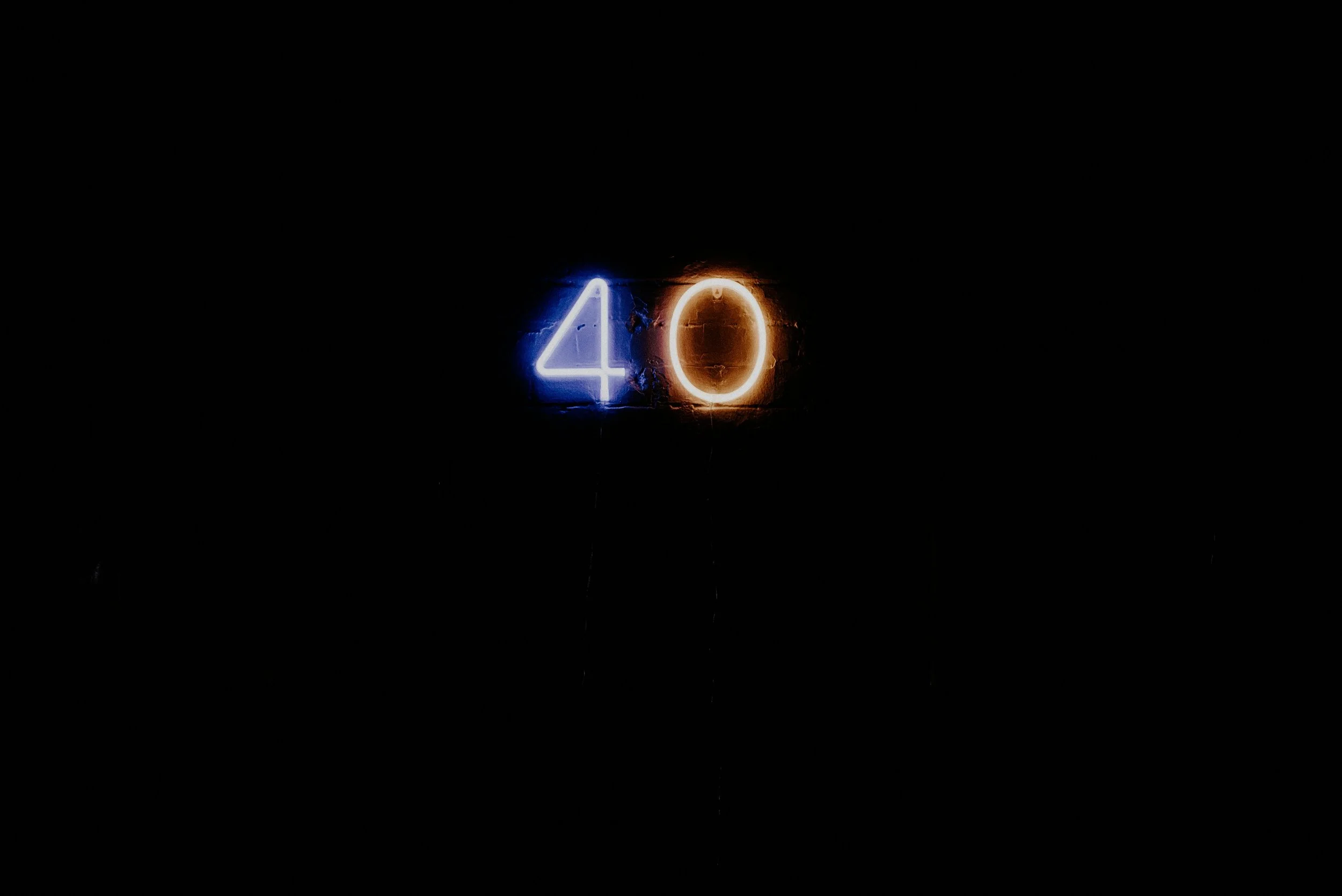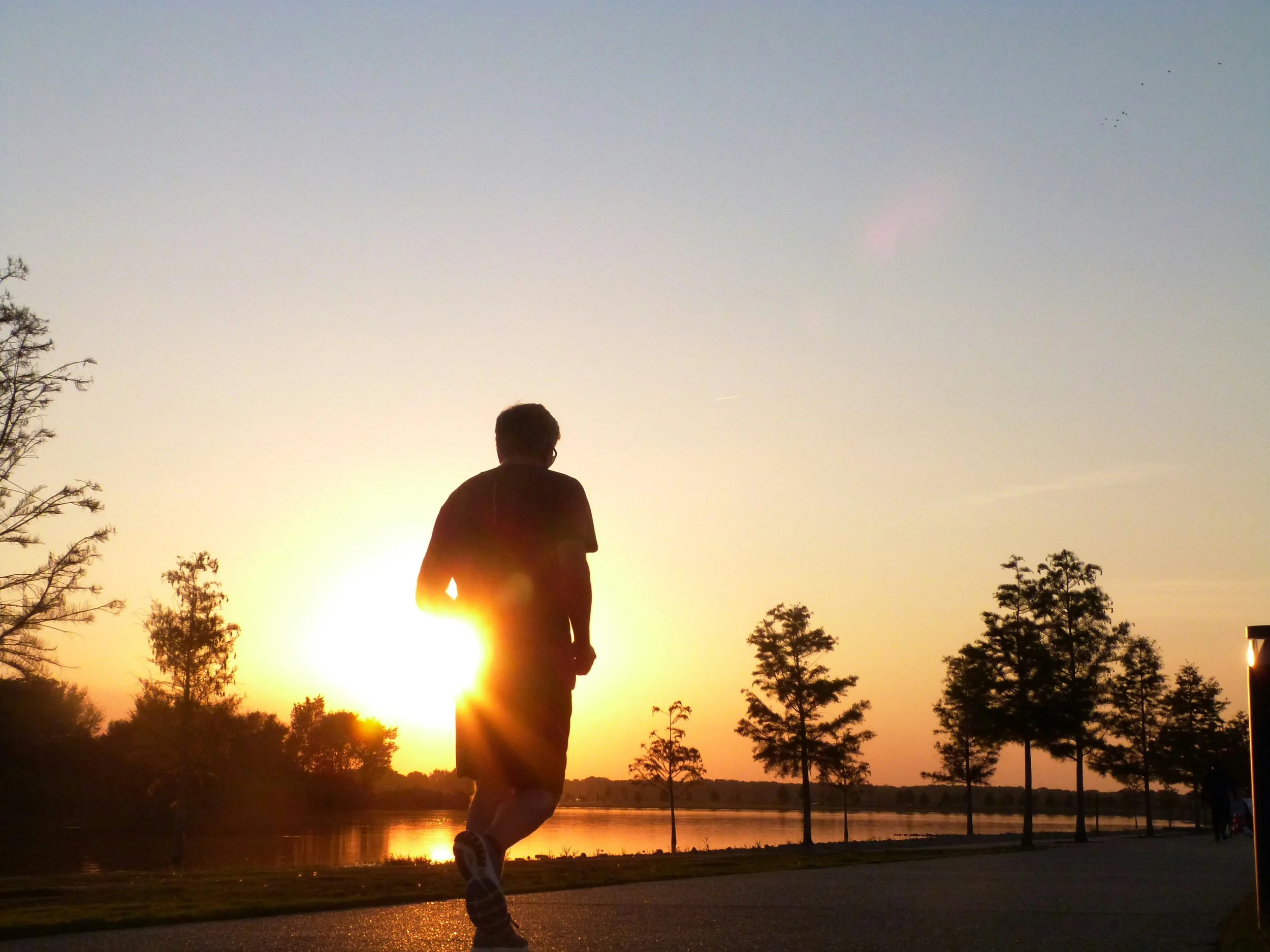
Beyond the Vibe: How to Stay Connected (and Sane) Through Dating and the Holidays
The holidays amplify everything - the loneliness, the longing, the pressure to “find someone.” But connection built on real alignment, emotional security, and genuine care lasts far longer than any “good vibe.” This piece explores how to date with intention, stay grounded through holiday loneliness, and build connection that actually feels safe.

The Power of Subtraction: How Sobriety Gave Me Back My Energy, My Time, and My People
Socialising feels harder than ever, but not because we’re broken - because the world is heavy, expensive, and exhausting. This piece explores how queer sobriety, micro-connections, and the surprising wisdom of “subtracting” can create more energy, presence, and joy than we ever found in the nightlife era.

Why I Run (and Why I Keep Going)
After losing eight friends in six years, I wasn’t suicidal — but I wasn’t really living either. Running gave me a reason to move again. It became meditation, therapy, and a quiet rebellion against despair. Every kilometre said, “You’re still here.”

What True Wealth Looks Like (and How I Forgot It for a Minute)
For a while, I kept Get Out running on autopilot - ticking boxes, doing the right things, but feeling the spark fade. Then I read new research on purpose and realised I’d stopped doing the one thing that made all this feel alive: contributing. Happiness, it turns out, isn’t found in chasing more. It’s in giving something meaningful away.

The Art of Staying After the High
There’s a kind of silence that follows transformation — the hush after the confetti, the stillness after the summit, the hangover after the hope. When I first got sober, no one told me the hardest part wouldn’t be quitting. It would be staying.

Learning to Belong to Myself
Coming out was freedom - but what came after? We explore belonging, authenticity, and the quiet courage of becoming yourself.

What Regret Taught Me (So You Don’t Have to Learn the Hard Way)
Coming out was never the hard part - staying true once the noise began was. I spent years chasing belonging through busyness, mistaking visibility for value. When the mask cracked, I learned something quieter but more enduring: peace isn’t found in being everywhere, it’s built by being honest somewhere. Sobriety, structure, and small rituals didn’t make life smaller - they made it real.

National Coming Out Day: The Year I Stopped Performing (and Started Telling the Truth)
Coming out isn’t just about disclosure - it’s about honesty. In this deeply personal reflection for National Coming Out Day, we explore what happens after the big reveal: the quiet unlearning of performance, the rebuilding of trust, and the courage to stop editing yourself for approval. From Sydney socialite nights to sober mornings that finally feel real, this piece celebrates truth-telling as the ultimate form of self-care - and community as the place where that truth can breathe.

Stop Waiting for a Sign: How to Build Meaning (and Guard Your Life) Without Magic
Coincidences feel like winks from the universe. “Find your passion” promises a perfect fit. Both can keep us stuck. Meaning isn’t discovered; it’s developed. Passion isn’t a soulmate; it’s a relationship you build through reps, friction, and identity. This essay trades omens for agency: shrink the unit of decision, pick a place, invite one person, and practice consistency. There’s a harm-reduction edge too—daylight plans and shared containers protect queer lives from drift and chemsex pressures. Signs can delight you; they just don’t get to steer.

The Companionship Effect: Why Doing Life With People Beats Hustle, Hacks, and Heroics
Most self-help advice is a solo sport: get up earlier, grind harder, optimise smarter. But a huge time-use study shows something simpler—and kinder: almost everything feels better when you don’t do it alone. From co-working to co-errands to low-key “parallel play,” shared rhythms lift mood, make habits stick, and protect mental health (especially for queer folks navigating loneliness or chemsex pressures). This piece swaps lone-wolf optimization for social fitness—tiny, repeatable touch points that make ordinary weeks easier, lighter, and more human.

The Mindful Miles: How Exercise Teaches Us to Slow Down, Breathe, and Be
Exercise doesn’t just strengthen the body - it can quiet the mind. Slowing down into zone 2 running or mindful movement offers a rare stillness in motion, a state where stress eases and presence takes over. This piece explores how mindfulness and exercise intertwine, from scientific evidence on mood-boosting neurochemicals to the lived reality of finding peace through steady effort.

The Myth of Earning Love Through Work
Many of us grow up believing love must be earned through achievement, effort, and endless work. But this belief often leaves us exhausted, lonely, and disconnected from what matters most. Drawing on psychology, personal finance wisdom, and end-of-life reflections, this piece explores the myth of “earning” love, why so many of us fall into the trap, and how to choose differently — reclaiming joy, connection, and presence in the process.

Love, Out Loud (Even When We Disagree)
What if happiness isn’t found in the dream house, the perfect partner, or the algorithm that promises you connection, but in something far less glamorous? A coffee shared with strangers. A difficult truth spoken with kindness. A ritual repeated often enough that it becomes belonging. We think joy is a climax — a wedding, a promotion, a viral moment. But the science (and the stories of ordinary people) keep showing us that happiness is much quieter, more human, and infinitely closer than we realise.

Forty, Without the Filter: Notes on Getting Older, Getting Real, and Getting a Life
Turning forty feels less like joining the “This Is 40” Instagram brigade and more like finally meeting myself. I don’t have the dream house, a partner on my arm, or thirst traps to prove I still “look good for my age.” What I do have is sobriety, friendships that last longer than a weekend, and a body and mind I can actually trust. This isn’t about being “blessed.” It’s about being real, reflective, and quietly proud of progress over perfection.

The 4:30 a.m. Club: Why Early Starts + Hard Effort Changed My Brain (and Might Protect Your Health)
Exercise isn’t just “good for you” — it may directly change your blood chemistry in ways that suppress cancer cell growth. We unpack new findings from exercise-oncology, why high-intensity intervals spike helpful myokines, and how resistance work builds the muscle that makes those signals stronger. Add the mental edge of early starts — better mood, cleaner focus — and you’ve got a morning protocol that’s about more than abs; it’s agency. Practical templates included, whether you’re rebuilding or levelling up.

The Partner Plot Twist: What If Dating Isn’t the Main Story?
If every conversation ends with “So, seeing anyone?”—you’re not imagining it. We’re culturally obsessed with coupling, even as apps turbo-charge snap judgments and fuel loneliness. This piece makes the case for stepping off the treadmill: prioritising friendship, purpose, and community over performance dating. With fresh research on swipes, AI “companions,” and why stated preferences rarely match real choices, here’s how to choose connection that lasts—whether or not it leads to a relationship.

Am I OK? A True Answer for R U OK? Day
For years my answer to “R U OK?” was no. I numbed, I spiralled, and I couldn’t picture life getting better. One honest sentence — “I’m not OK” — led to 30 days in hospital and a slow rebuild built on therapy, movement, and showing up. Today my answer is yes. If yours isn’t, borrow my belief and start with one conversation. I’ll listen.

The Real-Life Reset
The less time I spend online, the more my life feels like mine — better sleep, warmer friendships, finished projects. Research shows why: screens promise connection but often fuel loneliness. This piece swaps performance for presence, with five “micro-freedoms” to trade screen time for real time (device sabbath, outdoors by default, one ongoing group, embrace friction, host tiny). The algorithm can wait. Your people — including you — can’t.

Dry(ish) Is the New Deep: How Drinking Less (or Not at All) Gave Me My Life Back
I used to outsource confidence to a drink. Quitting didn’t turn me saintly — it made me steadier. With more people rethinking alcohol (and data backing the shift), this is the sober-ish playbook that rebuilt my energy, friendships, and self-respect: morning anchors, clean-fun rituals, social plans that don’t revolve around booze, and a kinder way to “start again.” No preaching — just practical steps for a life that feels like yours again.

When the Bot Becomes Your Best Friend: AI, Validation, and the Risk of Losing the Real Thing
AI can feel safer than people — instant feedback, no judgment. But when a bot becomes our go-to for comfort and advice, our real-world connection muscles atrophy. This piece unpacks the benefits, the risks, and a better way to use AI without losing the human skills that make life work.
